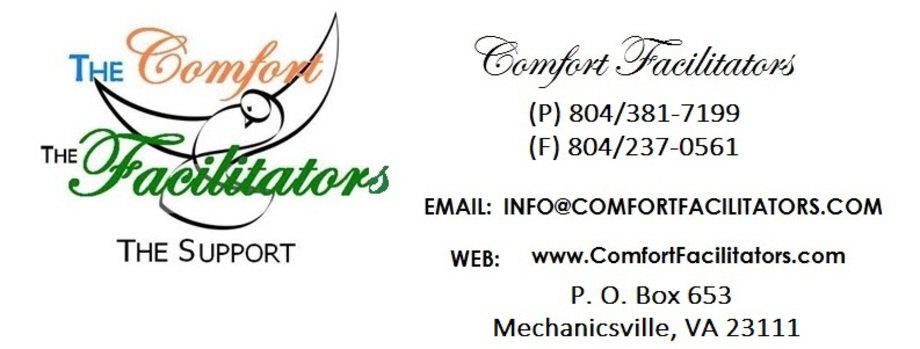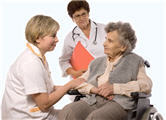
Elderly and Disabled with Consumer Directed Services (EDCD Waiver)
Fact Sheet 2015
Initiative: Home and community-based (1915 (c)) waiver whose purpose is to provide care in the community rather than in a nursing facility (NF).
Targeted Population: Individuals who:
· Meet the NF level of care criteria (i.e., they are functionally dependent and have a medical nursing needs);
· Are determined to be at imminent risk of NF placement; and
· Are determined that community-based care services under the waiver are the critical services that enable the individual to remain at home rather than being placed in a NF.
Effective Date: February 1, 2005
Eligibility: The individual must be eligible for Medicaid and meet screening criteria; income limit is 300% of the SSI payment limit for one person.
Eligibility Disregards: Working individuals have a greater need due to expenses of employment; therefore an additional amount of income shall be deducted. Earned income shall be deducted within the following limits: (i) for individuals employed 20 hours or more, earned income shall be disregarded up to a maximum of 300% of SSI; and (ii) for individuals employed at least eight but less than 20 hours, earned income shall be disregarded up to a maximum of 200% of SSI. However, in no case, shall the total amount of income (both earned and unearned) disregard for maintenance exceed 300% of SSI.
Covered Services: Covered services shall include:
· Adult Day Health Care · Assistive Technology*
· Environmental Modification*
· Medication Monitoring (can only be received in conjunction with PERS)
· Personal Care Services (Agency- and Consumer-Directed)
· Personal Emergency Response System (PERS) – Installation and may or may not include monthly monitoring. This is not a stand-alone service and must be authorized in addition to one of the other services available in this waiver.
· Respite Services (Agency- and Consumer-Directed)
· Transition Coordination
· Transition Services *
These services are available only to those EDCD waiver enrollees who are participants in the Money Follows the Person demonstration.
Service Authorization: Local and hospital screening teams conduct preadmission screenings and assess the individual prior to the provision of services. A screening team consists of a registered nurse, social worker, and a physician. A service authorization contractor performs enrollment and authorization of services.
Program Administration: Program is administered by DMAS.
Criteria: The following criteria must be met:
· The individual must meet NF criteria as outlined in the Pre-Admission Screening Manual, Appendix B. The individual must be both functionally dependent and have medical and nursing needs;
· The individual must be determined to be at risk of NF placement, and community-based care service under the waiver is the critical service that enables the individual to remain at home rather than being placed in a NF;
· The health, safety, and welfare of the individual must be safely maintained in the home at all times;
· EDCD Waiver services cannot be provided to individuals who reside in a NF, an intermediate care facility for persons with Intellectual Disability (ICF/ID), a hospital, an assisted living facility licensed by the Department of Social Services (DSS) that serves five or more individuals, or a group home licensed by the Department Behavioral Health and Developmental Services (DBHDS) with the exception of transition coordination and transition services;
· EDCD Waiver services cannot be provided to any individual who resides outside the physical boundaries of the Commonwealth, with the exception of brief periods of time as approved by DMAS; and
· To receive consumer-directed services for personal attendant or respite care services, individuals cannot have a severe cognitive impairment, or they must have someone managing their care for them.
Definitions Source: 12VAC30- 120-900 and 12VAC30-120-2000
"Adult day health care” means long-term maintenance or supportive services offered by a DMAS-enrolled community-based day care program providing a variety of health, therapeutic and social services designed to meet the specialized needs of those waiver individuals who are elderly or who have a disability and who are at risk of placement in a nursing facility. The program shall be licensed by the Virginia Department of Social Services as an adult day care center (ADCC). The services offered by the center shall be required by the waiver individual in order to permit the individual to remain in his home rather than entering a nursing facility. ADHC can also refer to the center where this service is provided.
“Agency-direct model of service” means a model of service delivery where an agency is responsible for providing direct support staff, for maintaining individuals’ records, and for scheduling the dates and times of the direct support staff’s presence in the individuals’ homes for personal and respite care.
"Assistive technology" or “AT” means specialized medical equipment and supplies including those devices, controls, or appliances specified in the plan of care but not available under the State Plan for Medical Assistance that enable waiver individuals who are participating in the Money Follows the Person demonstration program pursuant to Part XX (12 VAC 30-120-2000 et seq.) to increase their abilities to perform activities of daily living, or to perceive, control, or communicate with the environment in which they live, or that are necessary to the proper functioning of the specialized equipment.
"Consumer-directed (CD) model services" means the model of service delivery for which the waiver individual or the individual’s employer of record, as appropriate, are responsible for hiring, training, supervising, and firing the person or persons who actually render the services that are reimbursed by DMAS.
"Environmental modifications" or “EM” means physical adaptations to an individual’s EDCD Waiver Fact Sheet Page 3 of 4 November 2015 primary home or primary vehicle or work site, when the work site modification exceeds reasonable accommodation requirements of the Americans with Disabilities Act (42 USC § 1201 et seq.), which are necessary to ensure the individual’s health and safety or enable functioning with greater independence and shall be of direct medical or remedial benefit to individuals who are participating in the Money Follows the Person demonstration program pursuant to Part XX (12 VAC 30-120-2000 et seq.). Such physical adaptations shall not be authorized for Medicaid payment when the adaptation is being used to bring a substandard dwelling up to minimum habitation standards.
"Medication monitoring" means an electronic device, which is only available in conjunction with Personal Emergency Response Systems that enables certain waiver individuals who are at high risk of institutionalization to be reminded to take their medications at the correct dosages and times.
"Personal care services" means a range of support services necessary to enable the waiver individual to remain at or return home rather than enter a nursing facility and that includes assistance with activities of daily living (ADLs), instrumental activities of daily living (IADLs), access to the community, self-administration of medication, or other medical needs, supervision, and the monitoring of health status and physical condition. Personal care services shall be provided by aides, within the scope of their licenses/certificates, as appropriate, under the agency-directed model or by personal care attendants under the CD model of service delivery.
"Personal emergency response system” or “PERS" means an electronic device and monitoring service that enable certain waiver individuals, who are at least 14 years of age, at risk of institutionalization to secure help in an emergency. PERS services shall be limited to those waiver individuals who live alone or who are alone for significant parts of the day and who have no regular caregiver for extended periods of time.
"Respite services" means services provided to waiver individuals who are unable to care for themselves that are furnished on a short-term basis because of the absence of or need for the relief of the unpaid primary caregiver who normally provides the care.
"Transition coordination" means the DMAS-enrolled provider who is responsible for supporting the individual and family/caregiver, as appropriate, with the activities associated with transitioning from an institution to the community pursuant to the Elderly or Disabled with Consumer Direction (EDCD) waiver.
"Transition services" means set-up expenses for individuals as defined in 12 VAC 30-120-20.10. Quality Management Review DMAS conducts quality management reviews of the services provided and interview individuals for all providers providing services in this waiver to ensure the health and safety of all individuals. Level of care reviews are performed at least annually.

